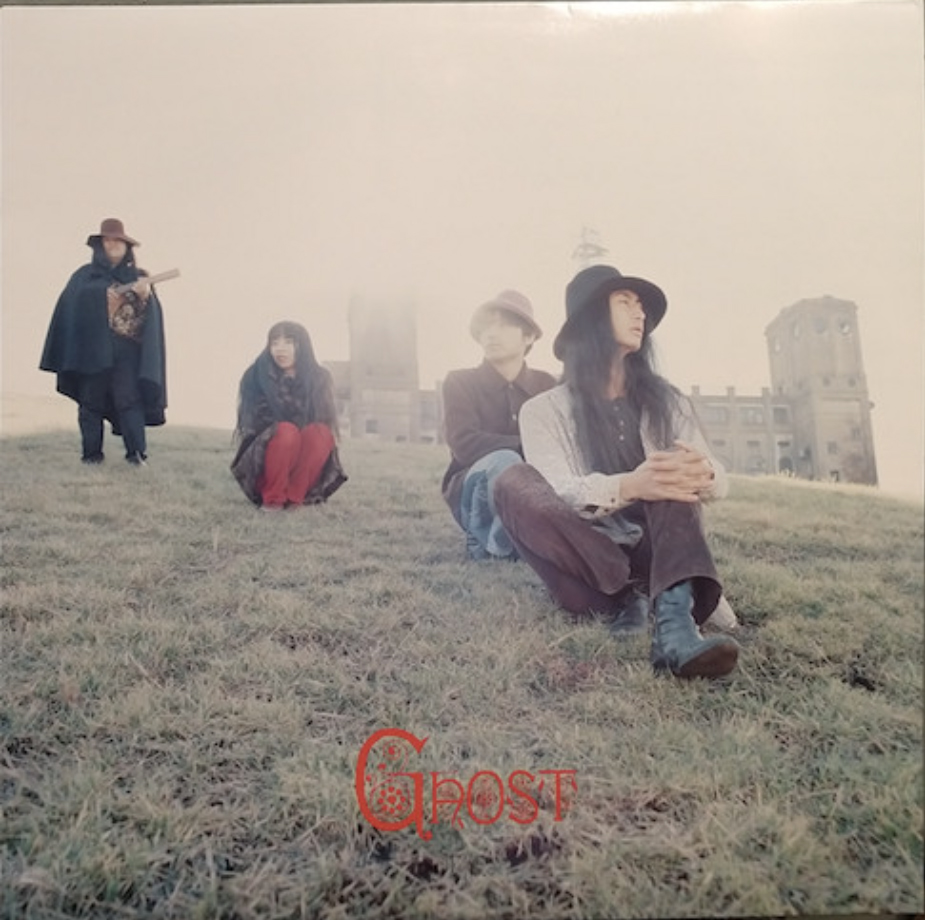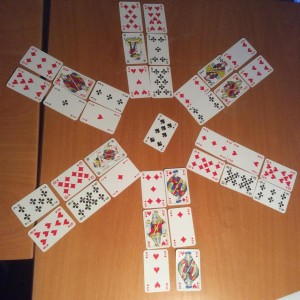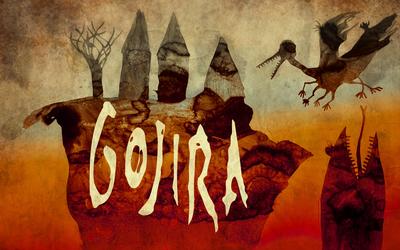
The almighty Japanese progrock of Ghost
My first encounter with Ghost occurred on the subtle plane. I was wasting my time in a hipster indie rock CD store in the early 1992 when I came across a rack of expensive Japanese imports. Knowing even less about the intense, mega-noodling world of underground Japanese psychedelia than I do now, I was drawn to a CD that featured four drapey young hippies lounging on a grassy knoll before a ruined castle. I gazed at the band’s long hair, their floppy hats and flutes; I drank in the arcane song titles (“Sun is Tangging,” “Moungod Asleep,” “Guru in the Echo”) and the floral curliques that festooned that one great word Ghost. Rarely had an unknown CD so forcefully enchanted my consumer mind — especially against my better judgment. It is not a good idea to purchase expensive imports based on cover art alone, especially when that art stirs up a fondness for freak rock that was already moldy in high school.
But if your ears have spend quality time with Amon Düül, Fairport Convention, and the Third Ear Band, Ghost songs can go in like sonic ambrosia. From their eponymous 1990 debut to the new Snuffbox Immanence and the slightly inferior Tune In, Turn On, Free Tibet, Ghost has unfurled an increasingly dense tapestry of harps, guitars, recorders, hurdy-burdies, and nameless bells and stones, all strung together with the haunting and incomprehensible vocals of reedy frontman Masaki Batoh. In some sense, this music should be impossible: a fresh and sometimes numinous font of acid folk that succeeds on its own terms without irony or false nostalgia. Hippie mysticism is not a reference but a living tradition. Ghost live communally and include a revolving cast of players; they have rehearsed and recorded in abandoned temples and churches; and Batoh is clearly up to his ajna chakra in mystical shit. For all their apparent anachronism, Ghost seem freed from the anxiety of influence, as if they live in some parallel universe of pothead troubadours, misty mountaintops, and endless bowls of Manali Valley hash.
Where they actually live is Japan, a land peppered with intensely devoted pockets of subculture — including a long-lived and richly varied psychedelic music scene. Unlike the bulk of these acts — ferocious improvisatory acts like High Rise, Mainliner, and Keiji Haino, who push distortion and intensity to the limit — Ghost explore the dewier, more melancholic valleys of Asian drones and lysergic acoustica, though their folkiness is far less “Oriental” than you may suppose. Like the Incredible String Band or the great Toru Takemitus, who introduced Renaissance lutes into his soundtracks for samurai movies, Ghost invoke the sounds of premodern Europe as part of a broader and more surreptitious strategy of eclectic enchantment. Their point is not to restore connections to ye olde days, whether Japanese or Celtic, but to craft a fantasized “tradition” that exists nowhere outside of their own musical mixtures and visionary yearnings. “Regenesis” on Snuffbox features a harpsichord-and-recorder jig that’s as twee as anything by Marc Bolan before he went electric, but on “Sad Shakers,” a similar Celtic twist is buried by monstrous guitar wank. And while “Soma” sounds like a lament for the Asian fey, Batoh plays a banjo and the cut ends with Robert Wyattish noodling over what sounds like a ukelele.
Soma is also one of the first Ghost songs Batoh has sung in Japanese, though it would be stretching things to say that the other language he favors is English. Though his pronunciation has improved over the years, I’m just not sure what to do with lyrics like “Deliquese whole loop into a blot” or “Was I falling yonder penumbra?” Emerging from some semantic netherzone between Syd Barrett poesy and bad dictionaries, such words make me think of a stoned and younger Batoh, headphones on, squeezing invisible landscapes out of the bardchant of Anglo-Saxon prog rockers. And in this sense his lyrics work, not because they mean anything but because they express a peculiar intensity drawn not from guitar feedback but from his own illuminated inner world.
Which is not to say Ghost can’t kick out the jams. On their last West Coast tour, the band somehow found themselves playing at a strip-mall music store in Vacaville, California, in a dorky, carpeted sound studio they nonetheless managed to transform into a temple of transcendent riffs and blue cheer (the gong helped). On 1996’s Lama Rabi Rabi, their first domestic release, they brought Stoogey guitars into the mix, though I am pleased to report that Snuffbox Immanence moves in a less predictable but no less propulsive direction. Some of the best songs derive their layered beats from Setsuko Furuya’s marimba, vibes, and tubular bells. Her work on the instrumental Daggma is simply amazing; imagine Steve Reich at a Renaissance Faire.
Unfortunately, Tune In, Turn On, Free Tibet, a followup to Snuffbox and an agitprop album of sorts, has nowhere near this kind of steam. Without the taut arrangements and instrumental variety of the earlier album, the disc wanders through a pleasant but more familiar hippie fog. At the same time, its commitment to the cause of Tibetan liberation is a nice reminder that Batoh and crew live, at least occasionally, in our real, hard world.




